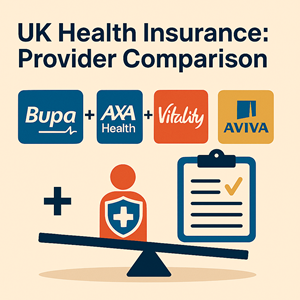Insurance companies in the UK operate in a highly competitive and regulated market, where effective marketing is essential for growth and customer retention. From television ads to digital campaigns, insurers use a mix of emotional appeal, trust-building, and product clarity to attract policyholders. The rise of comparison websites and consumer review platforms has also pushed insurers to refine their messaging and highlight unique selling points.

One common strategy is to emphasise peace of mind and financial security. Brands like Aviva and Direct Line often use storytelling to connect with audiences, while others focus on price competitiveness and ease of claims. Social media has become a key channel for engagement, with insurers using targeted ads and influencer partnerships to reach younger demographics. However, this shift to digital also brings risks—especially around misinformation and exaggerated claims.
In December 2024, Meta was exposed for hosting billions of scam ads across its platforms, including fraudulent insurance promotions. According to a Yahoo News report, Meta earned over $7 billion annually from high-risk ads flagged by its own internal systems. This scandal highlighted the need for stricter oversight and transparency in digital advertising.
Closer to home, the Advertising Standards Authority (ASA) updated its rules in 2025 to combat misleading advertising practices. A recent ASA bulletin outlined new prohibited commercial practices under the Digital Markets, Competition and Consumers Act 2024. These changes aim to protect consumers from deceptive pricing, false endorsements, and omitted terms—issues that have plagued both insurers and other service sectors.
Interestingly, the marketing tactics of insurers share similarities with those used by UK law firms. Both industries rely heavily on trust, clarity, and reputation. However, law firms face additional challenges due to regulatory constraints and the sensitive nature of legal services. For a deeper look into how solicitors approach marketing, see this guide on marketing for solicitors.
While insurers can use humour and lifestyle imagery to promote their products, law firms must maintain a tone of professionalism and authority. Yet both sectors benefit from SEO, content marketing, and client testimonials. The key difference lies in the emotional triggers—insurers often sell reassurance, while law firms sell resolution and expertise.
As UK advertising regulations evolve, insurers must balance creativity with compliance. Transparent messaging, ethical targeting, and accurate claims are no longer optional—they’re essential for long-term brand integrity. Whether selling life cover or legal advice, the principles of honest marketing remain the same: inform, engage, and respect the consumer.

